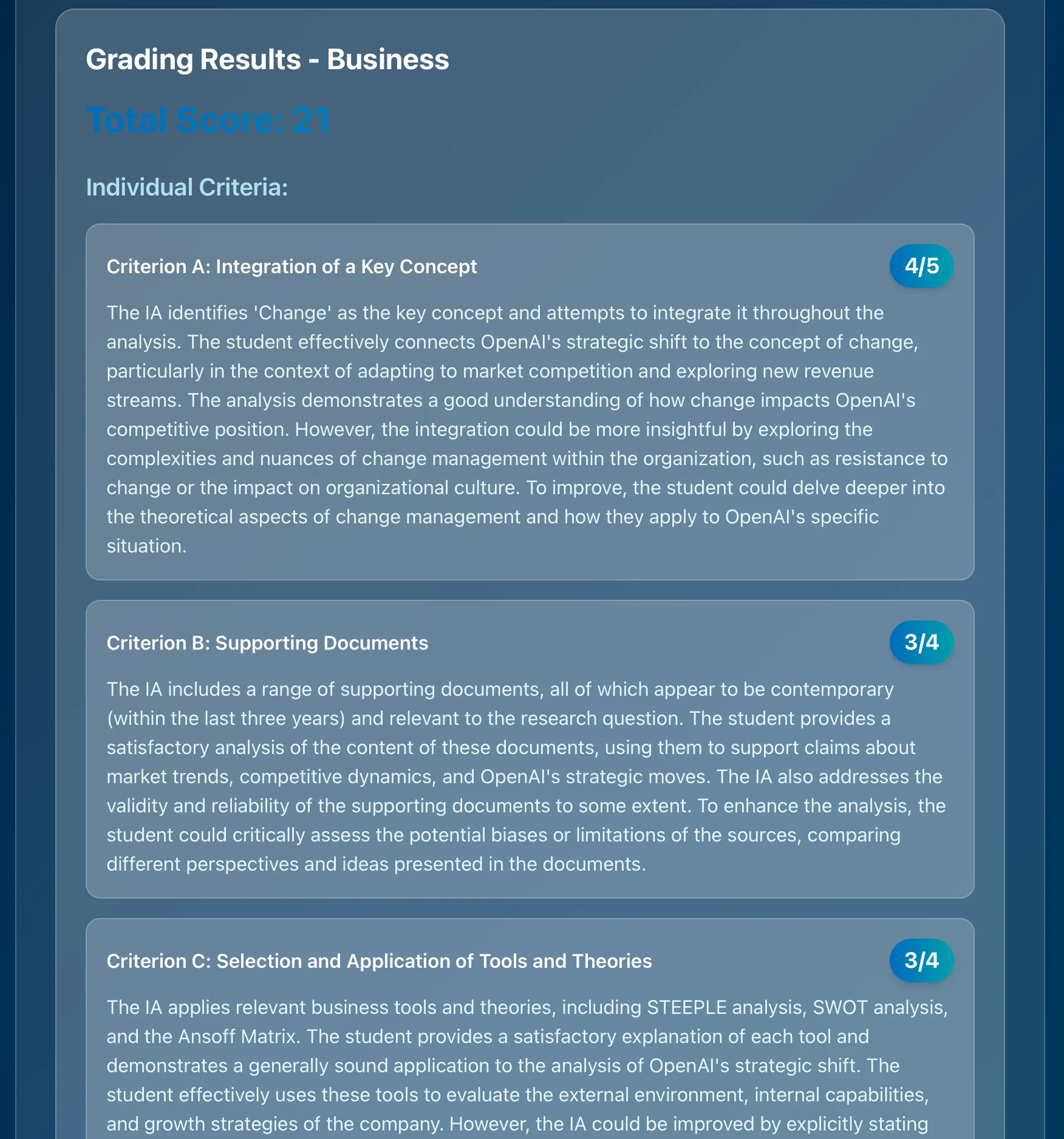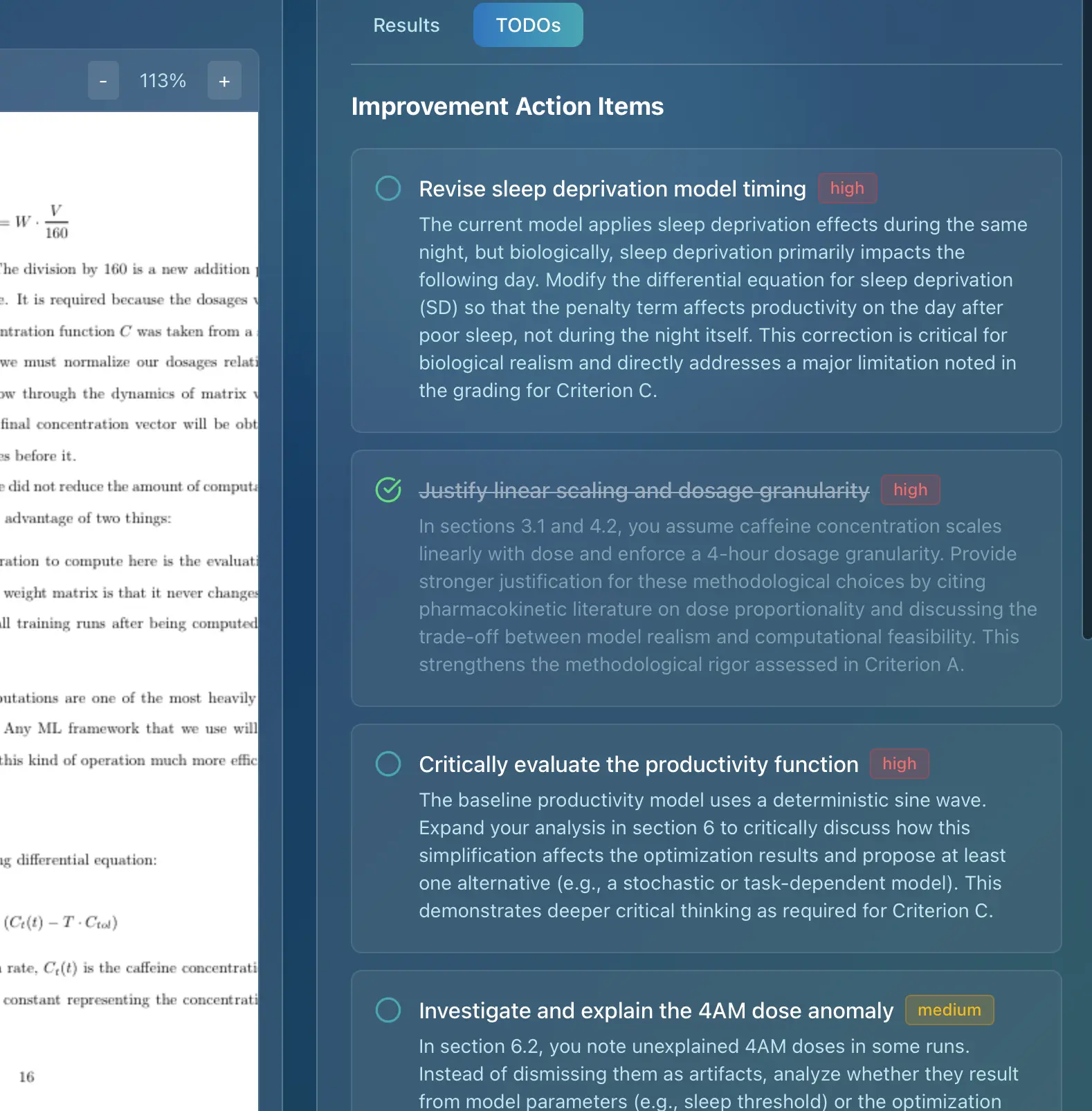Understanding the Ethical Guidelines for Your IB Psychology IA
The IB Psychology Internal Assessment (IA) is a crucial component of your overall IB score, and understanding the ethical guidelines is paramount to its success. This guide will walk you through the key ethical considerations for your IA, ensuring you conduct research responsibly and earn top marks. We'll cover everything from informed consent and confidentiality to debriefing and data handling, providing practical advice and real-world examples to help you navigate the ethical landscape of psychological research. By the end of this post, you'll have a clear understanding of how to design and execute an ethical IA that not only meets the IB's requirements but also contributes to the integrity of psychological science.
Why Ethical Guidelines Matter in Your IB Psychology IA
Ethical guidelines are the cornerstone of responsible psychological research. They protect the rights and well-being of participants while ensuring the integrity and validity of your findings. Failing to adhere to these guidelines can not only jeopardize your IA grade but also have serious consequences for your participants and the reputation of psychological research as a whole. The International Baccalaureate (IB) places a strong emphasis on ethical conduct, and demonstrating a thorough understanding of these principles is essential for achieving a high score in your IA.
Struggling with IB Assessments?
Get instant, detailed feedback on your work with AI that understands IB criteria.

Core Ethical Principles for Your IB Psychology IA
Several core ethical principles underpin all psychological research, and you must consider these carefully when planning and conducting your IA. These include:
- Informed Consent: Participants must be fully informed about the nature of the research, including its purpose, procedures, potential risks, and their right to withdraw at any time. They must provide voluntary consent to participate, free from coercion or undue influence.
- Confidentiality: Participants' data and identity must be kept confidential and protected from unauthorized access. Anonymity should be maintained whenever possible.
- Right to Withdraw: Participants have the right to withdraw from the research at any time, without penalty or negative consequences.
- Debriefing: After the research is completed, participants should be fully debriefed about the true nature and purpose of the study, including any deception that may have been used. They should also be given the opportunity to ask questions and receive support if needed.
- Protection from Harm: Participants must be protected from physical and psychological harm. Researchers must take steps to minimize any potential risks and ensure the well-being of participants.
- Data Integrity: Data must be collected, analyzed, and reported accurately and honestly. Researchers must avoid fabrication, falsification, or plagiarism.
Obtaining Informed Consent: A Step-by-Step Guide
Informed consent is a critical ethical requirement for your IB Psychology IA. Here's a step-by-step guide to obtaining informed consent from your participants:
- Develop an Information Sheet: Create a clear and concise information sheet that explains the following:
- The purpose of the research
- The procedures involved
- The potential risks and benefits
- The right to withdraw at any time
- How confidentiality will be maintained
- Contact information for the researcher (you) and your supervisor
- Create a Consent Form: Design a consent form that participants can sign to indicate their agreement to participate in the research. The consent form should include the following:
- A statement confirming that the participant has read and understood the information sheet
- A statement confirming that the participant is participating voluntarily
- A space for the participant to sign and date the form
- Obtain Consent Before Data Collection: Provide participants with the information sheet and consent form before they participate in your study. Allow them ample time to read and understand the information before asking them to sign the consent form.
- Address Questions and Concerns: Be prepared to answer any questions or concerns that participants may have about the research. Ensure that they fully understand the nature of the study and their rights as participants.
- Special Considerations for Minors: If your participants are under the age of 18, you must obtain consent from their parents or legal guardians in addition to obtaining assent from the participants themselves.
Example:
Imagine you're investigating the effect of background music on memory recall. Your information sheet should clearly state that participants will be asked to memorize a list of words under two conditions: with and without background music. It should also explain that their participation is voluntary, they can withdraw at any time, and their data will be kept confidential. The consent form would then ask them to confirm they understand this information and agree to participate.
Maintaining Confidentiality and Anonymity in Your IA
Protecting the confidentiality and anonymity of your participants is crucial for building trust and ensuring ethical research. Here are some practical tips for maintaining confidentiality and anonymity in your IB Psychology IA:
- Use Pseudonyms or Codes: Replace participants' names with pseudonyms or numerical codes in your data and reports.
- Store Data Securely: Store your data in a secure location, such as a password-protected computer or a locked cabinet.
- Limit Access to Data: Restrict access to your data to only those who need it for the research, such as your supervisor.
- Avoid Identifying Information: Do not include any identifying information in your reports or presentations that could potentially reveal the identity of your participants.
- Dispose of Data Properly: After the research is completed, dispose of your data securely, such as by shredding paper documents or deleting electronic files.
Example:
Instead of writing "John Smith scored 8 out of 10 on the memory test," you could write "Participant 001 scored 8 out of 10 on the memory test." This protects John Smith's identity while still allowing you to analyze and report your data.
Debriefing Your Participants: Providing Closure and Support
Debriefing is an essential part of the ethical research process. It provides participants with closure and support after they have participated in your study. Here's what you should include in your debriefing:
- Explain the True Purpose of the Study: Fully explain the true nature and purpose of the study, including any deception that may have been used.
- Answer Questions and Concerns: Provide participants with the opportunity to ask questions and address any concerns they may have about the research.
- Provide Resources and Support: Offer participants resources and support if they have experienced any distress or discomfort as a result of their participation.
- Thank Participants for Their Contribution: Express your gratitude to participants for their time and effort in contributing to your research.
Example:
If your study involved deception (e.g., telling participants they were receiving a placebo when they weren't), your debriefing should reveal the deception and explain why it was necessary for the research. You should also provide participants with the opportunity to discuss their feelings about the deception and offer support if needed.
Pro Tip: Get AI-Powered Grading
Stop second-guessing your grades. Get instant feedback aligned with official IB rubrics.

Common Challenges/Mistakes in IA Ethics
Many students struggle with the ethical aspects of their IB Psychology IA. Here are some common mistakes to avoid:
- Failing to Obtain Informed Consent: This is a fundamental ethical violation. Always obtain informed consent from your participants before they participate in your study.
- Compromising Confidentiality: Be vigilant about protecting the confidentiality of your participants' data.
- Insufficient Debriefing: Provide a thorough debriefing that addresses all of the key elements mentioned above.
- Ignoring Potential Harm: Carefully consider any potential risks to your participants and take steps to minimize them.
- Plagiarism: Ensure that all of your work is original and properly cited.
Advanced Tips/Strategies for Ethical Excellence
To go above and beyond in your ethical considerations, consider these advanced tips:
- Consult with Your Supervisor: Discuss your research design and ethical considerations with your supervisor early in the process.
- Conduct a Pilot Study: Conduct a pilot study to identify any potential ethical issues before you begin your main study.
- Use a Standardized Protocol: Develop a standardized protocol for your research to ensure that all participants are treated consistently and ethically.
- Consider Cultural Sensitivity: Be mindful of cultural differences and sensitivities when designing and conducting your research.
- Document Your Ethical Procedures: Keep a detailed record of all of your ethical procedures, including how you obtained informed consent, maintained confidentiality, and debriefed your participants.
Technology and Modern Assessment: The Role of AI
Technology is playing an increasingly important role in IB assessment, and AI is transforming how teachers provide feedback and students improve their work. As you navigate the ethical considerations of your IA, remember that AI tools can also play a role in ensuring fairness and accuracy in assessment.
Marksy, for example, is a leading AI grading assistant specifically designed for the International Baccalaureate. It helps teachers provide consistent, detailed feedback on IB assessments, including the Psychology IA, based on official IB rubrics. This ensures that students receive fair and accurate evaluations, regardless of who is grading their work.
Marksy analyzes student work against the specific criteria outlined in the IB Psychology IA rubric, providing criterion-by-criterion feedback and suggestions for improvement. This can help students understand exactly where they need to focus their efforts to achieve a higher score. Furthermore, by automating the grading process, Marksy saves teachers valuable time, allowing them to focus on providing more personalized support to their students. The AI uses official IB criteria to ensure accuracy and fairness, promoting a more objective and equitable assessment process.
Conclusion: Ethical Research for IA Success
Understanding and adhering to ethical guidelines is not just a requirement for your IB Psychology IA; it's a fundamental principle of responsible psychological research. By following the advice and strategies outlined in this guide, you can ensure that your IA is not only ethically sound but also contributes to the integrity of psychological science. Remember to prioritize informed consent, confidentiality, debriefing, and protection from harm. By doing so, you'll not only earn top marks in your IA but also develop the skills and knowledge you need to become a responsible and ethical researcher.
Ready to take your IB Psychology IA to the next level? Try Marksy for free today and experience the power of AI-driven feedback! See how it can help you understand the IB rubric better and improve your IA score, or streamline your grading workflow as a teacher.